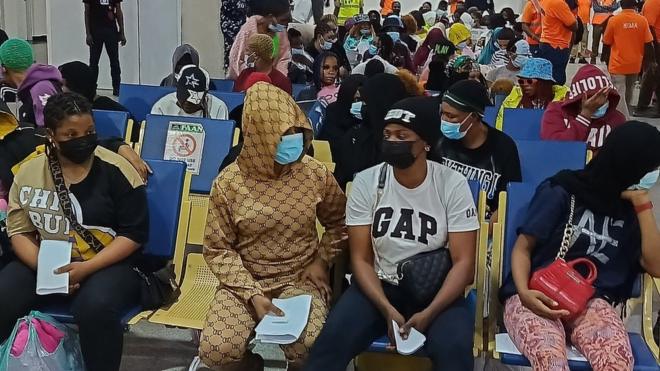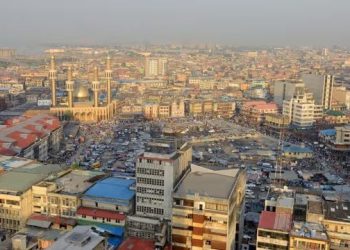Dubai visa ban on Nigerians is still in place. This is according to Bayo Onanuga, the Special Adviser on Information and Strategy to President Bola Tinubu.
Multiple reports had claimed on Tuesday, March 5, 2024, that the United Arab Emirates (UAE) announced the resumption of visa services to Nigerians who wished to come.
A joint announcement allegedly by the governments of Nigeria and the UAE entitled, ‘Resumption of Visa Services for Nigerians Travelling to the UAE’, went viral on Tuesday.
In the documents, it was stated therein that the visa ban was lifted on Monday, March 4.
The statement read that the commencement of visa issuance was a “milestone, reflecting the successful outcome of in-depth talks between the two nations and underscoring, “Our shared commitment to strengthening ties, enhancing cultural exchanges and fostering opportunities for economic and social collaborations.”
To ensure a seamless and efficient visa application experience, the UAE, according to the joint statement, introduced an enhanced document verification process.
Starting from March 4, 2024, all Nigerian applicants for UAE visas were required to first obtain a document verification number. This essential step, the UAE said, was to be completed by visiting the dedicated online Document Verification Hub platform (https/documentverificationhub.com).
“We are committed to facilitating straightforward and expedited visa applications for Nigerians. The introduction of the Document Verification Number is designed to enhance the integrity of our application process and ensure prompt processing for all applicants,” UAE Ambassador to Nigeria, Saleem Saeed Al-Shamsi was quoted as saying.
After obtaining the Document Verification Number, applicants were told they could proceed with their visa applications through designated travel agents, after which the process would be completed at the Embassy of the UAE in Abuja or Lagos.
Denying that the Dubai visa ban on Nigerians had been lifted, Onanuga released a statement, clarifying that the viral document through which this disclosure was made was not authorised by the Nigerian and UAE governments.
“UAE has not resumed visa issuance to Nigerians. The document in circulation is not authorized either by the Nigerian government or the UAE,” Onanuga said.
Why UAEV placed Dubai visa ban on Nigerians in the first place
The travel ban’s roots lie in the ongoing diplomatic discord between Nigeria and the UAE, particularly concerning Air Peace’s flight activity in the Arab nation.
At first, Air Peace applied for three weekly flights from Nigeria to Sharjah Airport in the UAE. However, the UAE’s General Civil Aviation Authority (GCAA) only approved one slot.
READ ALSO: Accord Party’s Iyere is First Candidate to Pick Running Mate
The GCAA warned Air Peace that discontinuing operations at Sharjah Airport would jeopardize its flight frequency. Air Peace denied these claims.
In response to the treatment of Air Peace in the UAE, Nigeria slashed Emirates’ flight slots from 21 to just one. This prompted the Dubai-based airline to suspend all flights to the west African country.
What the ban lifting would have meant
The lifting of the travel ban between Nigeria and the UAE would have carried significant implications for both countries, their citizens, and the broader economic landscape.
Such a move would have signaled a potential resolution to the diplomatic tensions and facilitated the restoration of normalcy in bilateral relations.
Primarily, the resumption of flights between Nigeria and the UAE would have provided a vital lifeline for travelers, businesses, and families separated by geographical boundaries.
It would have reinstated crucial connections for Nigerians traveling for business, tourism, education, and medical purposes to the UAE and vice versa.
Families and loved ones, separated by the travel ban, would have been reunited, allowing social cohesion and alleviating emotional distress caused by prolonged separation.
Also, the lifting of the ban would have reinvigorated trade and economic activities between the two countries. Nigeria and the UAE maintain robust economic ties, with significant investments and trade partnerships in various sectors including oil and gas, construction, finance, and technology.
The resumption of air travel would have facilitated the movement of goods, services, and personnel, contributing to enhanced economic growth, job creation, and investment opportunities for both nations.










